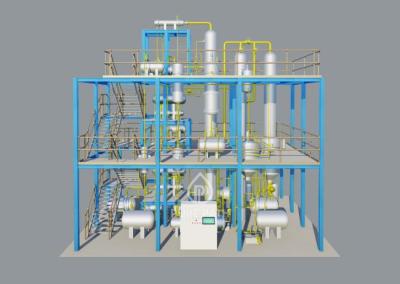Starting a Waste Oil to Base Oil Plant: Challenges and Opportun
-
The growing global concern for environmental sustainability has led to increased interest in recycling and upcycling waste materials. One such promising venture is the conversion of waste oil into base oil, a crucial component in the production of lubricants. This blog post delves into the challenges and opportunities associated with starting a waste oil to base oil plant.
Understanding the Process
Before diving into the challenges, let's briefly outline the process of converting waste oil into base oil:
Collection and Storage: Waste oil is collected from various sources, such as garages, workshops, and restaurants.
Pre-Treatment: The collected oil is pre-treated to remove impurities, water, and other contaminants.
Distillation: The pre-treated oil is subjected to a distillation process to separate it into various fractions, including base oil.
Additivation: The base oil is blended with additives to enhance its performance properties, such as viscosity, oxidation resistance, and corrosion protection.
Packaging and Distribution: The final product, base oil, is packaged and distributed to lubricant manufacturers.
Challenges in Starting a Waste Oil to Base Oil Plant
Initial Investment: Setting up a waste oil to base oil plant requires a significant initial investment in equipment, infrastructure, and technology.
Technological Expertise: The process of converting waste oil into base oil involves complex chemical engineering processes. Hiring and retaining skilled technicians and engineers is crucial.
Raw Material Supply: A consistent and reliable supply of waste oil is essential for the plant's operation. Establishing strong relationships with suppliers and developing efficient collection networks is vital.
Regulatory Compliance: Adhering to environmental regulations and obtaining necessary permits can be a complex and time-consuming process.
Market Fluctuations: The price of base oil can fluctuate due to factors such as crude oil prices and global demand.
Opportunities in the Waste Oil to Base Oil Industry
Environmental Impact: By recycling waste oil, these plants contribute to a cleaner environment and reduce pollution.
Economic Benefits: The industry offers significant economic opportunities, including job creation and revenue generation.
Energy Security: Reducing dependence on crude oil imports can enhance energy security.
Innovation and Research: There is ample scope for innovation and research in improving the efficiency and sustainability of the conversion process.
To successfully start a waste oil to base oil plant, thorough market research, careful planning, and strategic partnerships are essential. By addressing the challenges and capitalizing on the opportunities, entrepreneurs can contribute to a more sustainable future.
